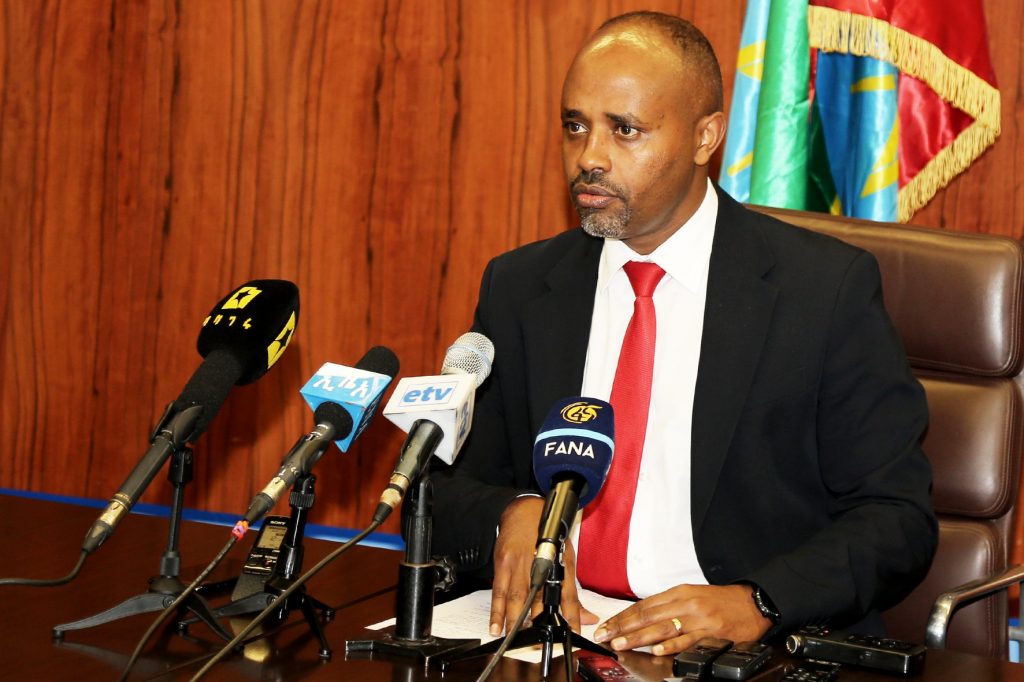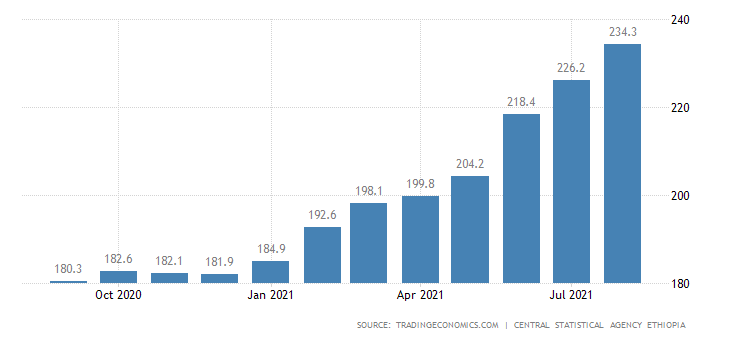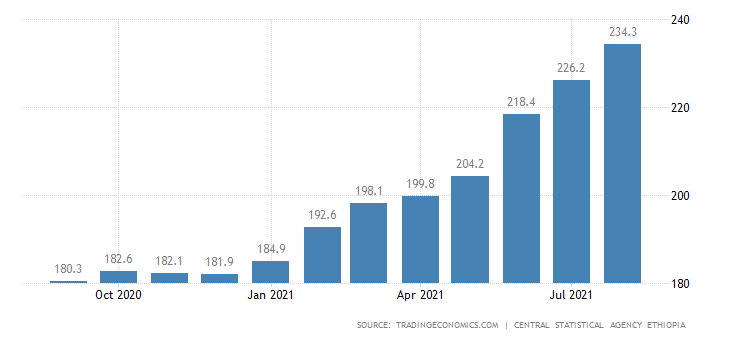
In a major break from Ethiopian PM Abiy Ahmed’s stance that no negotiations will be done with the “terrorist” Tigray National State government Ethiopia’s Finance Minister Eyob Tekalign this week announced that the guns should be silenced and peace negotiations begun to return to the path of prosperity. Mr. Tekalign and Ethiopia’s economy are in the midst of disaster after having paid more than a $ 1 billion USD as well as secretive Ethiopian gold transfers via Dubai to Eritrea and hundreds of millions in weapons sales to Turkey, Iran, among other suppliers too.
Ethiopia’s debt to foreign creditors now exceeds $30 billion USD requiring payment of nearly $2 billion USD annually for a country whose whole normal peacetime budget is $2 billion. Prior to Abiy Ahmed taking office Ethiopia had nearly 10% growth each year for the previous ten years but now the real growth for past year and half is -2%. Many analysts estimate that Ethiopia even if immediate peace was declared would require at least 10 years of solid growth exceeding 5% per annum to climb out of catastrophic debt.
Mr. Tekalign is meeting the representative countries from the International Monetary Fund to try to arrange newer financing and payment. The likely outcome is that in return for consideration in refinancing Ethiopia will likely have to make major and significant promises which will put its economic progress forward to be under rigorous scrutiny. In other words, Ethiopia’s foray into an unnecessary and unjust war will cost it significant freedom in future economic development until debts can be paid.
The Consumer Price Index has risen more than 250% over the past year along with inflation going over 40%. The Finance Ministry is trying to gain control by lifting taxes on basic food items and making banks increase deposit reserves with central banks. International bond raters now rate Ethiopian government bonds as Caa1 which is near worthless. Displacement of millions of farmers, locusts, changing rain patterns, and a complete absence of any near term stability for Ethiopia complicate any viable economic recovery. These failing economic indicators and the progressive success of the Tigray armed forces in dominating the Ethiopian and Eritrean forces are severely dampening any interest in foreign investment.



